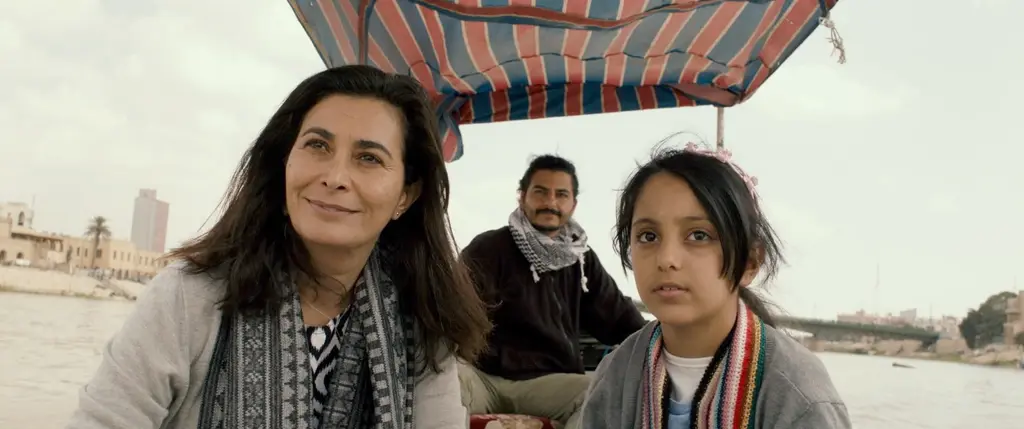Heathrow is suffocating Black Londoners
- Text by Ben Smoke
- Photography by Sebastian Grochowicz via Unsplash

In a coroner’s court in South London today, grim history was made. Ruling on the tragic death of nine-year-old Ella Kissi-Debrah, coroner Philip Barlow handed down a historic verdict, stating that Kissi-Debrah’s death in February 2013 was caused by severe asthma, acute respiratory failure and air pollution exposure.
In giving his ruling – the first of its kind in the UK to expressly link exposure to excessive air pollution to death – Barlow stated that Kissi-Debrah, who lived in Lewisham, was exposed to nitrogen dioxide and particulate matter (PM) pollution in excess of World Health Organisation guidelines. He added that, during Kissi-Debrah’s lifetime, nitrogen dioxide emissions in Lewisham had exceeded legal limits both in terms of EU and national limits. Levels of PM were also above WHO guidelines.
Most pressingly, he found that air pollution had both induced and exacerbated the asthma which claimed Kissi-Debrah’s life. Campaigners are hoping the landmark verdict will put pressure on the government and leaders across the country to act on air pollution.
Across the city, another historic judgment was being handed down. At the Supreme Court today, judges overturned a ruling from February this year which deemed Heathrow’s proposed third runway illegal for failing to take into account considerations around the Paris Climate Accords. The judgment today from the highest court in the land opens the door for Heathrow to seek planning permission for a third runway which campaigners say will emit the same greenhouse gases as the entirety of Kenya.
Earlier this year, air pollution from Heathrow was recorded in central London, approximately 15 miles away. The main emissions from airplanes included nitrogen dioxide and PM pollution – the exact pollutants ruled to have contributed to the death of Ella Kissi-Debrah.
The third runway judgment is the culmination of years of legal and political battles over the runway and is a bitter blow to those fighting for clean air and against devastating climate change. That it should be handed down upon the same day that a coroner has found that the death of a nine-year-old Black girl living in a deprived part of the city was due in part to air pollution is more than just bleak serendipity or coincidence. It highlights, in the starkest possible terms, the reality of the climate crisis in the UK.
Let’s not mince words here. As many have already said, the climate crisis is a racist crisis. It is a classist crisis. Time and time again, we have seen that those who suffer the most from rising air pollution are disproportionately poor. They are disproportionately black and minority ethnic.
A 2016 report found that 15.3 per cent of those exposed to illegal levels of nitrogen dioxide in London were Black, African or Caribbean, while making up only 13.3 per cent of the city’s populations. In 2017, nearly half of London’s most deprived areas exceeded legal levels of nitrogen dioxide pollution. Only two per cent of the wealthiest areas saw rates of pollution breach the same levels.
In London’s poorer inner boroughs – where air pollution is at its highest – car ownership is below 50 per cent. A 2019 study unequivocally showed that the poorest in London are exposed to dangerous levels of air pollution because of the vehicle usage of those in richer areas. Across the UK, 70 per cent of flights are taken by just 15 per cent of people. Across the world, only three to seven per cent of people have flown.
We simply cannot ignore the reality of the situation any longer. People are dying – and it’s people of colour who are bearing the brunt of the government’s inaction, incompetence and malevolence. Their lives are being cut short by the decisions of a rich few. The impacts of climate change worldwide have been being felt by the poorest in the global south for decades – their lives cut short by the rich global north. Over and over we see the same pattern. The same winners. The same losers.
The crass juxtaposition of the judgments today proves once again that the fight for climate justice, the fight against airport expansion, against air pollution or fossil fuels isn’t just an environmental one. It is a fight for social justice. A fight against racism. Against the tyranny of privilege and wealth. If the government and those in power are not willing to act, we must – if for no other reason than to ensure that the verdict in Ella Kissi-Debrah’s case is remembered as a tragic and terrible anomaly, not the harbinger of a devastating new normal.
Ben Smoke is Huck’s Politics Editor. Follow him on Twitter.
Enjoyed this article? Like Huck on Facebook or follow us on Twitter.
You might like

Capturing life in the shadows of Canada’s largest oil refinery
The Cloud Factory — Growing up on the fringes of Saint John, New Brunswick, the Irving Oil Refinery was ever present for photographer Chris Donovan. His new photobook explores its lingering impacts on the city’s landscape and people.
Written by: Miss Rosen

In photos: Ghana’s complex e-waste industry
A new exhibition explores the country’s huge, unregulated industry, which can be hazardous to workers’ health and the local enviroment, yet provides economic opportunity to many.
Written by: Isaac Muk

We’re aviation workers that support airport protests
As a wave of disruption hits airports across Europe, there are many industry professionals that understand the motivations behind these actions, writes campaign group Safe Landing.
Written by: Todd Smith

The everyday voices silenced in our coverage of the Middle East
Until women and young people are heard, we won’t break this cycle of destruction and dehumanisation, argues director Maysoon Pachachi.
Written by: Maysoon Pachachi

Suella Braverman has declared a war on rights that we must win
The Home Secretary's latest attack on the rule of law must be resisted writes lawyer Raj Chada.
Written by: Raj Chada

Stand Up Paddle Boarding
Screw It! — Miles Masterson vents his frustration as the stand up paddle boarding apocalypse sweeps his homebreak.
Written by: Miles Masterson

